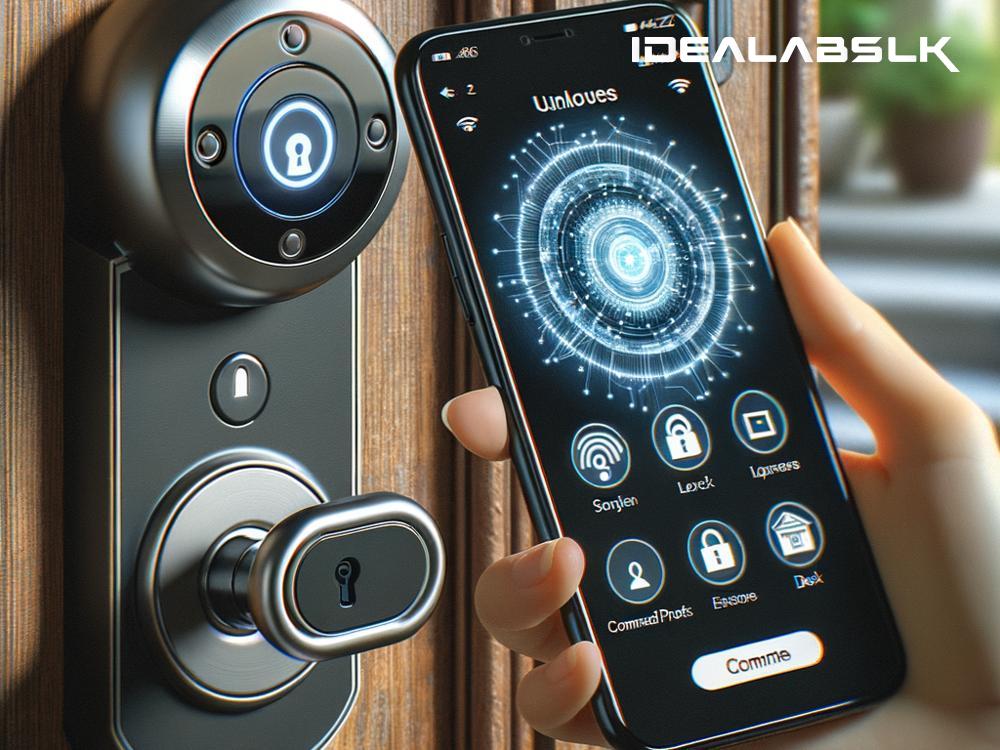Unlocking the Future: How AI is Boosting Security in Smart Locks
In the realm of home and office security, smart locks have been a game changer. Gone are the days when keys and heavy metal locks were the sole guardians of our doors. With the advent of smart locks, access control has become more flexible, efficient, and secure. However, the integration of Artificial Intelligence (AI) into smart locks is pushing the boundaries even further, particularly in enhancing security for multiple users. Let's dive into how AI is transforming smart locks, making them an essential feature of modern, secure homes and workplaces.
The Basics of Smart Locks
Smart locks refer to electromechanical locks that lock and unlock a door when it receives instructions from an authorized device using a wireless protocol. They allow users to monitor and control their locks remotely, offering the convenience of keyless entry and the ability to send digital keys to guests or service providers. However, as the number of users increases, managing access while maintaining security becomes more challenging. This is where AI steps in.
AI: The Brain Behind Smarter Locks
AI in smart locks is like having a highly intelligent, watchful guardian who knows who should and shouldn't have access to your space. It doesn't just blindly follow commands to lock or unlock; it makes decisions based on patterns, behaviors, and pre-set rules. Here's how AI is enhancing multi-user security in smart locks:
Recognizing You and Yours
One of the most personal touches AI brings to smart locks is facial recognition. Instead of fumbling for keys or your phone, the lock scans your face to decide if the door should swing open for you. For families, offices, or shared accommodations, this means everyone gets a personalized key - their unique facial features. This technology puts an end to concerns about lost keys or changing locks when a key is misplaced.
Learning Behaviors and Patterns
AI is not just about recognizing faces; it's also about understanding routines. Over time, it learns the comings and goings of users. This might seem a bit 'Big Brother-ish' at first, but it's incredibly practical. For instance, if a door typically unlocks for a user around 5 PM on weekdays, and suddenly there's an attempt to unlock it at 2 AM, the system can flag this as unusual. Depending on how the smart lock is configured, it can send alerts or require additional verification before granting access.
Temporary Access with Time-bound Permissions
Handing over a traditional key to a guest, dog walker, or cleaner always carries a risk. They could lose it, copy it, or forget to return it. AI-driven smart locks eliminate this worry through digital keys that are only valid for specific times. This is ideal for Airbnb hosts or offices with cleaning staff who need access outside of regular hours. Once the set time expires, so does the access, without the owner needing to do anything.
Real-Time Alerts and Logs
AI-enabled smart locks provide real-time updates and access logs directly to your smartphone. This way, you're always in the loop on who's entering or leaving your property. In shared spaces, this feature adds a layer of security by ensuring that only authorized users are coming in and out, and any unauthorized attempt is immediately reported.
Improved Security Features
Cybersecurity is a major concern with any smart device, including locks. AI enhances security protocols by continually learning and adapting to new threats. It can update its software in real time to fend off hacking attempts, ensuring that your digital keys remain safe and your home secure.
Conclusion: The Key to Future-Proof Security
AI in smart locks is not just a fancy add-on; it's a transformative feature that's setting new standards in security and convenience. It offers personalized, adaptive security solutions that traditional locks can't match. Whether it's through facial recognition, behavior analysis, or real-time monitoring and alerts, AI is making multi-user access not just safer but also more seamless.
As we move forward, the integration of AI in smart locks is expected to become even more sophisticated, with possibilities like voice recognition and predictive AI that can anticipate security needs before they arise. For homeowners, property managers, and businesses, adopting these AI-enhanced smart locks means not just keeping up with the times but staying ahead of the curve in security technology. In a world where convenience and security are paramount, AI-driven smart locks are indeed unlocking the future of access control.

